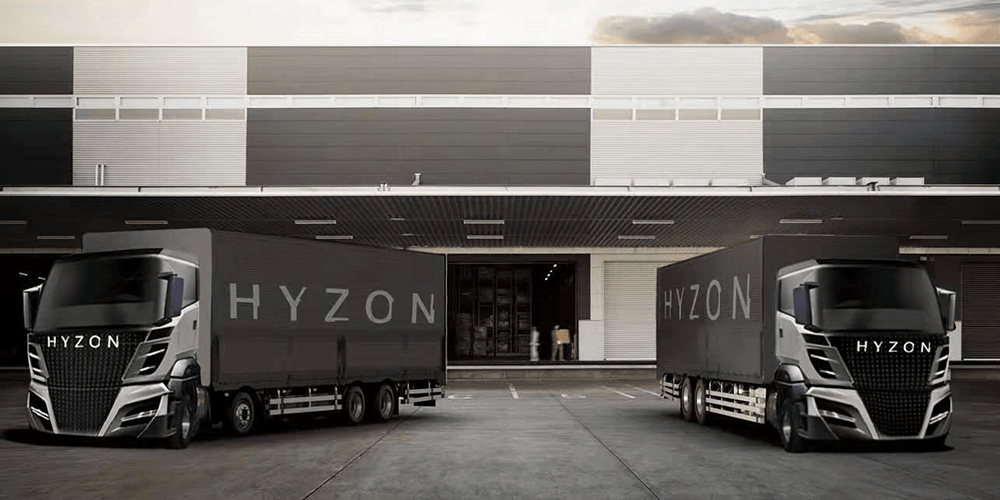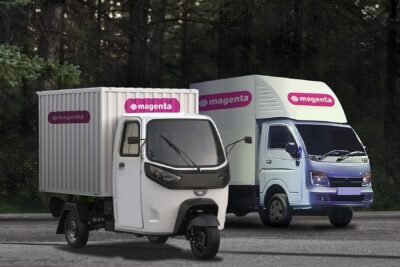Utrecht goes for H2 infrastructure and Hyzon vehicles
In the Netherlands, by 2025, the province of Utrecht plans to have built up to ten hydrogen refuelling stations and deployed a total of 1,800 hydrogen vehicles from Hyzon Motors.
In accordance with its agreement with the province of Utrecht and its general infrastructure collaboration strategy supported by the Hyzon Zero Carbon Alliance, the fuel cell vehicle maker Hyzon Motors should supply quite a diverse range of zero-emission transportation solutions.
This entails 300 hydrogen-powered trucks and other heavy vehicles, as well as 1,500 lighter vehicles such as cars and vans, Hyzon said. Among the heavy fuel cell vehicles supplied will be “two to five hydrogen-powered buses” and one or two hydrogen-powered ships.
As for infrastructure, the target of the Utrecht initiative is five to 10 hydrogen refuelling stations. This should bring partners together to promote the production of green hydrogen and develop the regional infrastructure for hydrogen supply. This hydrogen will then be used regionally to power the aforementioned vehicles on the province’s roads and canals.
“The Utrecht 1,800 vehicle pledge connects and aligns partners along every step of the value chain: local governments, green hydrogen producers, distributors, FCEV OEMs, and customers,” said Craig Knight, CEO and co-founder of Hyzon. “Hydrogen will play a significant role in decarbonizing transport; if we focus on building out the ecosystem through collaborations such as this and the Hyzon Zero Carbon Alliance, we can reach our zero-emissions goals that much more swiftly”
So far, Hyzon Motors has not yet revealed further details on the vehicles it will supply to Utrecht as part of the initiative. When the fuel cell vehicle maker established a European subsidiary last year and opened its European headquarters in the Dutch city of Groningen, the company said its drives would be built in the USA and that the assembly of the trucks and buses would be carried out by partners. In Europe, Holthausen Clean Technology builds the Hyzon trucks on the basis of DAF’s XF Space Cab tractor unit, where fuel cell trucks for the European market will also be produced. These production systems already appear to be in full swing: In April this year, Hyzon Motors announced that it had started production of 15 FC vehicles for the city of Groeningen to be delivered by the end of this year. The company also very recently launched a leasing service for heavy-duty fuel cell commercial vehicles in Europe.
Hyzon Motors has moved at an eye-watering pace since it was founded in March last year. The company’s rapid global expansion is not exactly that of a startup from the point of view that the company shares a founder and has close ties to fuel cell manufacturer Horizon Fuel Cell, headquartered in Singapore.
In February of this year, Hyzon announced its IPO and reported an order from New Zealand for a total of 1,500 fuel cell trucks. This New Zealand project appears to be conducted with similarly collaborative large scale, cross-sector agreements as appears to be in play in the Utrecht deal. This month already, the company signed a MoU with Saudi Arabia for FCEV production there, which also involves collaboration with a vast green hydrogen production scheme, and just a week later announced the installation of 100 green hydrogen hubs in partnership with Raven SR in Illinois, USA.
In the United States, the company has two facilities in Rochester, New York State. One is a fuel cell testing facility, while the other facility houses the administrative headquarters, vehicle production and powertrain assembly. In addition, Hyzon is also currently planning to build a production facility for membrane electrode assemblies (MEA) in Illinois.
For its part, the province of the city of Utrecht is also breaking new ground with other projects in terms of collaborative zero-emission vehicles and infrastructure. For example, along with other partners, Hyundai and We Drive Solar are planning to test electric car-sharing in combination with bidirectional charging on a large scale starting this summer.





0 Comments